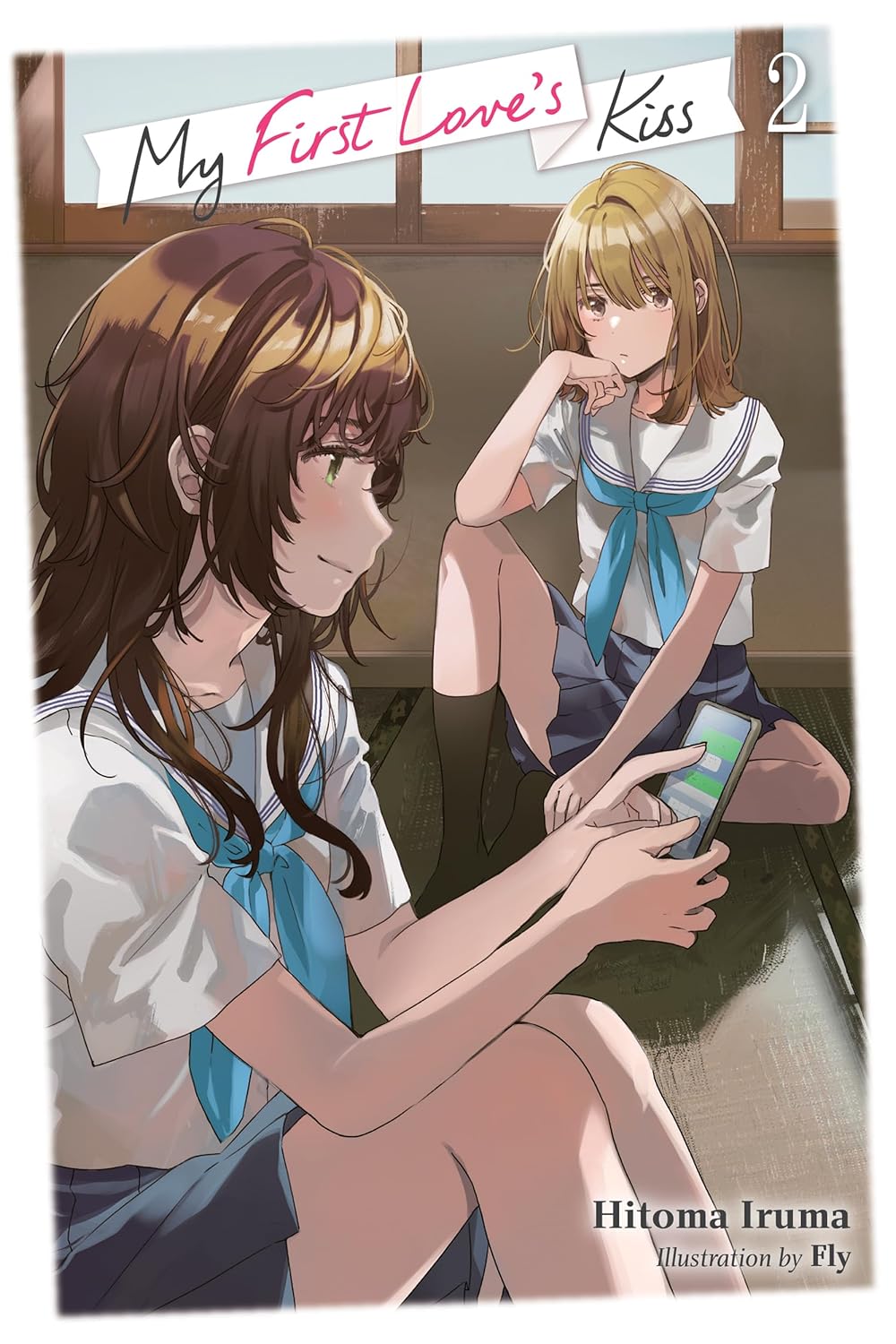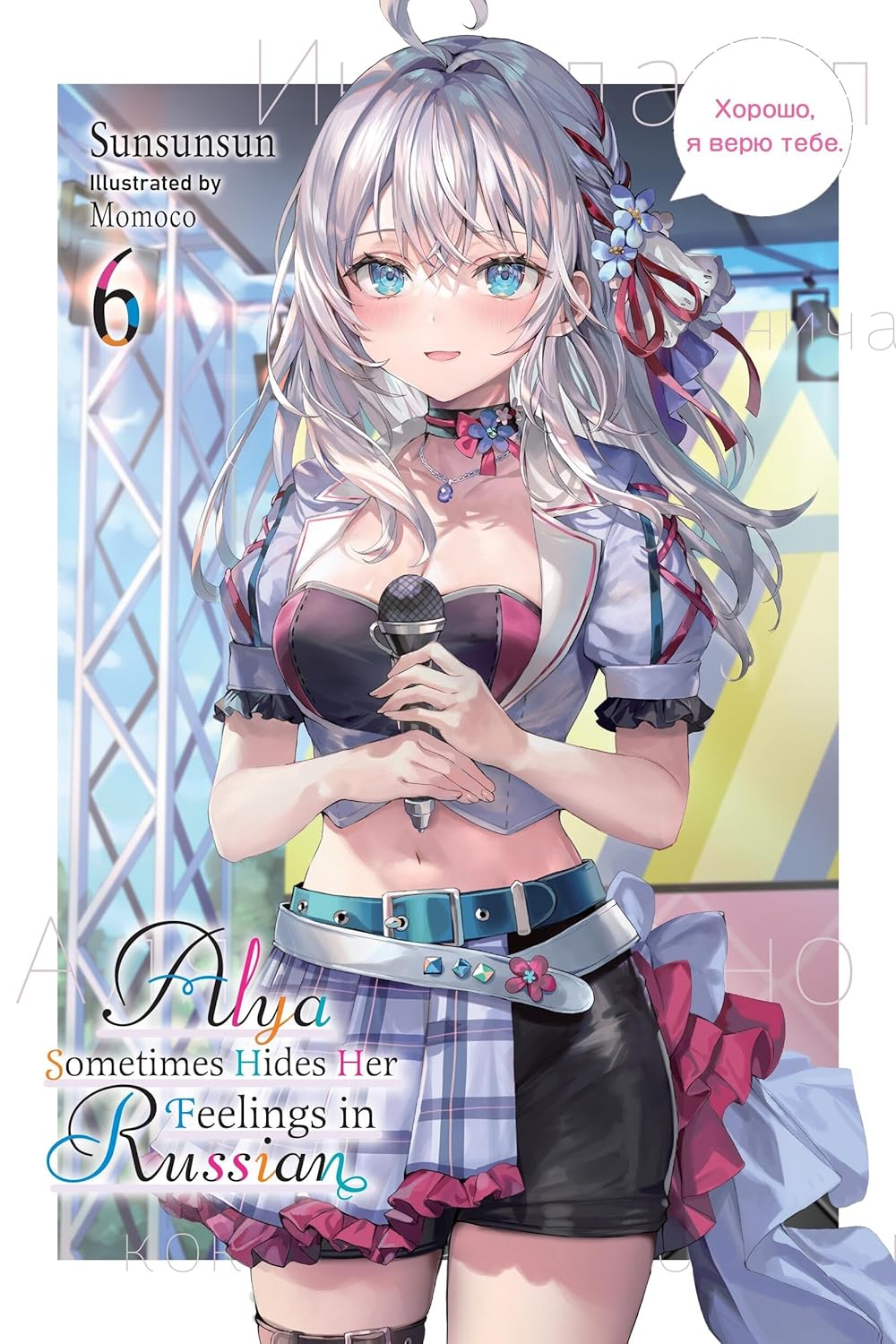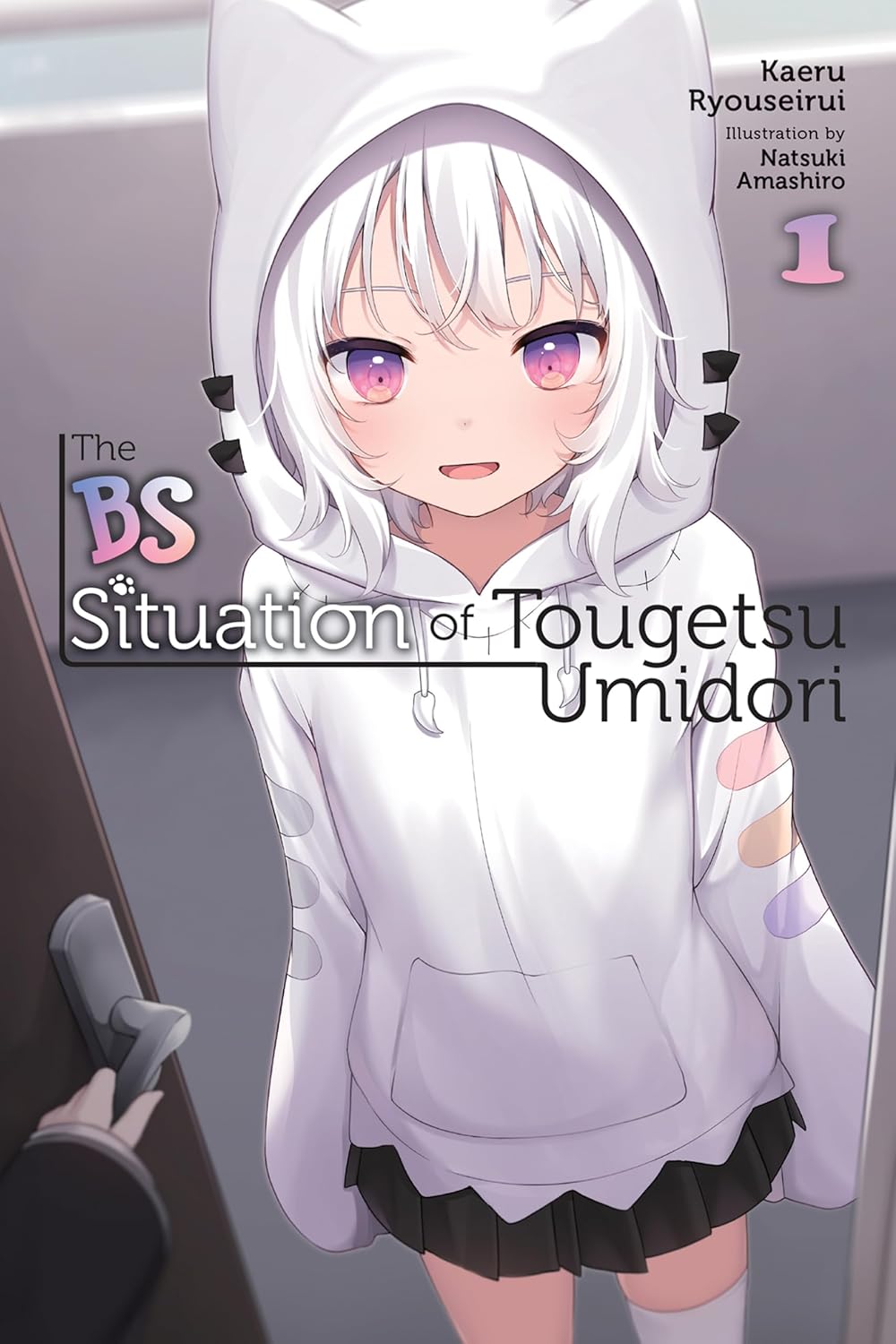By Hitoma Iruma and Fly. Released in Japan as “Watashi no Hatsukoi Aite ga Kiss Shiteta” by Dengeki Bunko. Released in North America by Yen Press. Translated by Kiki Piatkowska.
So there’s a huge cliffhanger plot twist at the end of the book, and I’m gonna have to discuss it, so let’s put it after the picture and plot summary. In the meantime, let’s talk about the only reason I really am keeping up with this series: how does it tie into Adachi and Shimamura? Last time it was hinted that Chiki was somehow connected to Hino’s extended family, and a prologue in this volume continues to hint that’s the case. This volume, desperate to find out more about the woman that she’s become so besotted with that it’s become obsession, Umi does detective work and manages to infiltrate Hino’s vast estate, and gets the information she needs, mostly thanks to the timely arrival of Nagafuji. I joked that I would scream if this series ended up getting Nagafuji involved in its tawdriness, and the good news is that she and Chiki never meet. Indeed, Umi sees Hino and Nagafuji’s friendship and envies it. The bad news is the rest of the book.
We open, after a prologue showing a young girl deliberately injuring herself and blaming a family member, with Takasora confronting Umi and Chiki. Chiki, highly amused by all this drama, admits they’re going to a hotel, and then invites Takasora along, to have a “girls’ sleepover”. To Umi’s horror, Takasora accepts, and they all spend the night in a swank hotel room, though sex does not happen, or at least not while Takasora is awake. The next day, while Umi is asleep, Takasora (who has confessed her love, and been rejected, as expected) has a long chat with Chiki, who reveals her real name is Shiho Chitaira (which Takasora doesn’t really believe), and not to tell Umi. A couple days later, Chitaira takes Umi out on a date, shopping and buying her a seemingly expensive ring. What Umi doesn’t know is Chitaira is also taking Takasora out on reluctant outings, playing on her jealousy and self-loathing and preying on her just as she’s preyed on Umi.
So the artist on this is Fly, and it has to be said, the characters in the series do tend to look alike, particularly Umi and Chitaira. I wonder if Iruma saw the art and decided on the plot twist at the end of this volume, and said “hey, since they already look like sisters…” So yes, this volume’s cliffhanger ending was a twist and a half. I had assumed that the book would end with Umi’s rage at Takasora for getting caught up in Chitaira’s scheming, and there is a bit of that. That’s the normal “toxic yuri hell” part of this book. Then Umi’s mother shows up, greeting Chitaira warmly, and wonders why she never said she’d introduced herself to Umi. And then says “Umi, this is Shiho, your older sister.” Honestly, if that came from Chitaira I wouldn’t have believed it, thinking it would be another weird scheme to create more drama. But it’s coming from Umi’s mother, who we’ve seen throughout the series has all the scheming ability of a cream puff, so I have to assume it’s the case. I didn’t think anything could make things worse, and I was oh so naive.
If this were a longer series, I would nope out. But it ends in the next book. I had idly wondered, midway through this volume, if the final twist would be Umi managing to actually get Chitaira to genuinely stay with her, but obviously the end of this book has blown that out of the water. I now wonder if the series will end with everyone alive.
Oh, for the curious, Hino, when she shows up, talks about meeting a kid in a spacesuit while fishing, if you’re trying to figure out where this is in the Adachi and Shimamura timeline.


